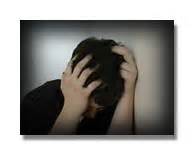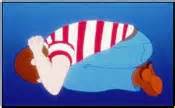Sometimes you need a little help when you finally accept that you are depressed, and there is nothing wrong with that. As long as you understand that there are a lot of things that you can do to get over depression then you should be fine in the long run. You are going to want to make sure that you try your best to consult with a therapist so that you can have someone be with you throughout your entire depression. That way you know you are receiving assistance from a professional that will help you overcome being depressed. Look through this article to see what a therapist can do for you.
Therapy: How It Can Help Your Depression
 A therapist can give you someone to talk to, and venting is good for a depressed person. A lot of people who are depressed need someone to talk to regularly. A therapist will listen to your issues and concerns without judgment. You don’t have to feel embarrassed about what your therapist thinks about you because it is their job to listen. What is great about venting to a therapist is they do not talk about the conversations you have outside of each of your sessions. That way you know everything you say is kept inside and that you do not have to worry about what you say.
A therapist can give you someone to talk to, and venting is good for a depressed person. A lot of people who are depressed need someone to talk to regularly. A therapist will listen to your issues and concerns without judgment. You don’t have to feel embarrassed about what your therapist thinks about you because it is their job to listen. What is great about venting to a therapist is they do not talk about the conversations you have outside of each of your sessions. That way you know everything you say is kept inside and that you do not have to worry about what you say.
Sometimes group therapy helps you consult with different people to help you through your depression. In addition to regular one on one therapy, you are going to want to consider getting group therapy. Group therapy is a good thing because it will help you talk to others who are facing similar problems as you. See if you can join a group therapy session so that you can talk to other people and get ideas from them for how to best manage your depression. This might be the best help for you, and you can build long lasting relations with people during these sessions.
Try out other therapy sessions with a different therapist to see if that helps any better. Your therapist might not be a good fit for you; therefore, you might need to go to another individual to receive the help you need. If you are serious about getting better then take no shame in visiting another therapist; it could be just what you need to more forward.
Trust in your therapist and what they have to offer you. There is a reason why they are licensed, and they are there to help you. If you are serious about battling through your depression and living a meaningful life, you are going to want to try your best to get better through therapy. Hopefully after reading this article you have a good idea about what a therapist can do for you and how you can better manage your depression. It takes a little patience, but you are definitely in the right place and have the right mindset. Use this article as your guide to tackle depression head on; you will be glad that you did.








